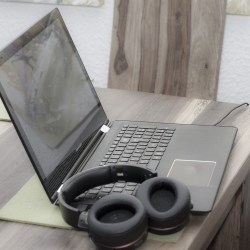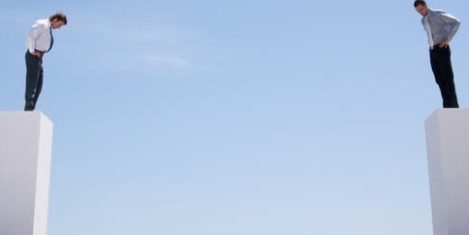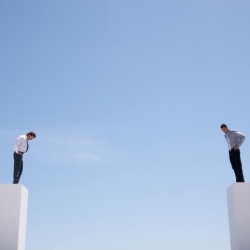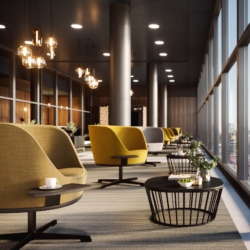March 1, 2021
Zoom fatigue is real and has four basic causes
 The much discussed idea of Zoom fatigue turns out to be a real phenomenon according to new peer reviewed research from Stanford academics. The study published in the American Psychological Association’s journal Technology, Mind, and Behaviour found that meetings conducted via video calls leave participants feeling more exhausted and emotionally drained than those held face to face. The study found the four most important factors that make video calls so exhausting; the constant need for eye contact, the ability to see one’s own face constantly during meetings, the need to sit still for long periods and difficulties in interpreting or communicating via body language. (more…)
The much discussed idea of Zoom fatigue turns out to be a real phenomenon according to new peer reviewed research from Stanford academics. The study published in the American Psychological Association’s journal Technology, Mind, and Behaviour found that meetings conducted via video calls leave participants feeling more exhausted and emotionally drained than those held face to face. The study found the four most important factors that make video calls so exhausting; the constant need for eye contact, the ability to see one’s own face constantly during meetings, the need to sit still for long periods and difficulties in interpreting or communicating via body language. (more…)







 The UK COVID-19 vaccination programme is well underway. Once the over 50s, younger people with health conditions, NHS and care workers have received the vaccine, Prime Minister Boris Johnson has been clear that current lockdown restrictions could be lifted in stages with schools and business a top priority. The situation is under review, but there is an expectation that business premises could reopen as early as Easter, when a large proportion of the working age population may not have been vaccinated. That means the focus in workplaces and other multi-occupant spaces, especially those open to the public, must remain on limiting transmission to prevent the spread of
The UK COVID-19 vaccination programme is well underway. Once the over 50s, younger people with health conditions, NHS and care workers have received the vaccine, Prime Minister Boris Johnson has been clear that current lockdown restrictions could be lifted in stages with schools and business a top priority. The situation is under review, but there is an expectation that business premises could reopen as early as Easter, when a large proportion of the working age population may not have been vaccinated. That means the focus in workplaces and other multi-occupant spaces, especially those open to the public, must remain on limiting transmission to prevent the spread of 
 Research released by
Research released by 
 Workers in Britain are facing inequality due to a stark difference in employers’ approaches to flexible working, with nearly half (46 percent) of employees saying they do not have flexible working arrangements – such as flexi-time, part-time working, compressed hours or job shares – in their current role. This is according to new research from the
Workers in Britain are facing inequality due to a stark difference in employers’ approaches to flexible working, with nearly half (46 percent) of employees saying they do not have flexible working arrangements – such as flexi-time, part-time working, compressed hours or job shares – in their current role. This is according to new research from the 
 New data analysis by web design and development agency
New data analysis by web design and development agency 


 When we think about inclusivity and diversity in the corporate world, we often think of racial and cultural diversity, gender, or LGBTQ+ inclusion—but one aspect that has been too long forgotten or ignored is the topic of disability inclusion. Caroline Casey, disability activist, CEO and founder of the
When we think about inclusivity and diversity in the corporate world, we often think of racial and cultural diversity, gender, or LGBTQ+ inclusion—but one aspect that has been too long forgotten or ignored is the topic of disability inclusion. Caroline Casey, disability activist, CEO and founder of the 
 A December 2020 online study of 1,136 employed U.S. adults carried out by wellbeing provider
A December 2020 online study of 1,136 employed U.S. adults carried out by wellbeing provider 
 Heightened anxiety during the Covid-19 pandemic has led to employees working longer hours and taking fewer sick days, all the while becoming less fulfilled by work and life, according to the latest analysis from
Heightened anxiety during the Covid-19 pandemic has led to employees working longer hours and taking fewer sick days, all the while becoming less fulfilled by work and life, according to the latest analysis from 
 A lack of balance through lockdown has been felt most dramatically by Brits living in house shares according to new research released by
A lack of balance through lockdown has been felt most dramatically by Brits living in house shares according to new research released by 
 GlobalWebIndex (GWI), together with LinkedIn’s B2B Institute, has launched “
GlobalWebIndex (GWI), together with LinkedIn’s B2B Institute, has launched “







February 3, 2021
What we all get wrong about motivation and the hierarchy of needs
by Mark Eltringham • Comment, Wellbeing
(more…)